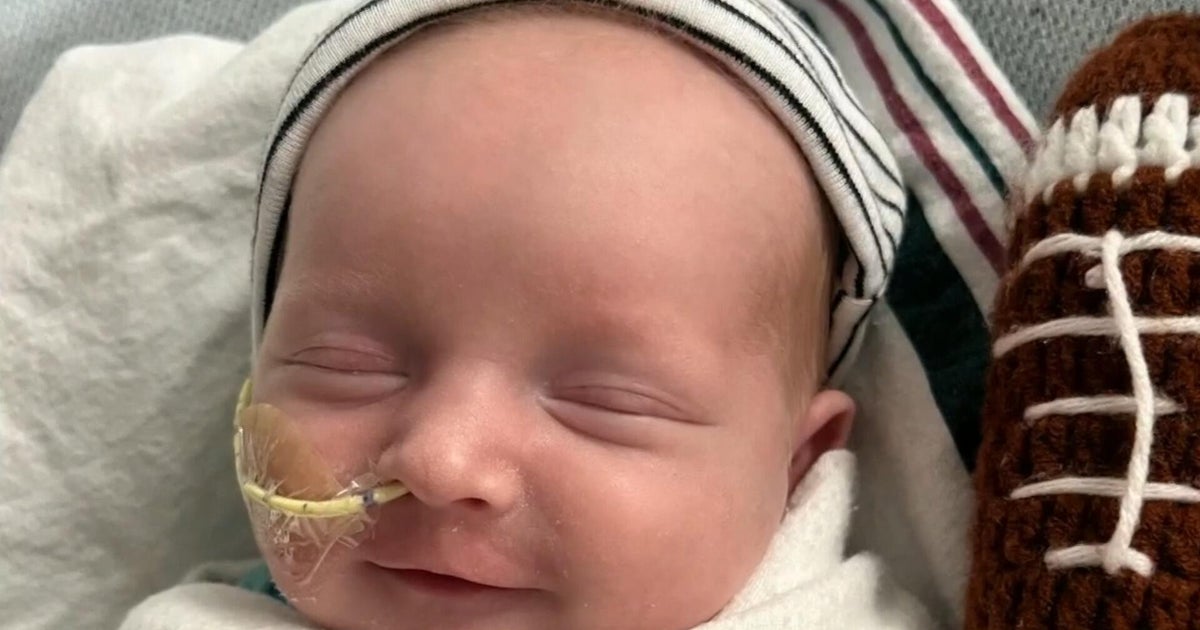Soon after KJ Muldoon was born in the summer of 2024, he was diagnosed with a rare genetic disorder that is fatal for about half the infants who are born with it.
Until now, the only effective long-term treatment for the rare metabolic disease known as severe Carbamoyl Phosphate Synthetase 1 deficiency, or CPS1, had been a liver transplant.
Instead, doctors at the Children’s Hospital of Philadelphia told KJ’s family they could try something never done before. They would use a technology known as CRISPR, a personalized gene-editing therapy, to find the one uniquely mutated gene out of 20,000 in his little body, and fix it.
He became the first known patient in the world to be treated using CRISPR personalized just for him, according to a news release from Penn Medicine. His case was published Thursday in the New England Journal of Medicine.
If i could edit my genes to be immortal you bet your ass i would. Saving this kid thats already born from dying in a coin flip seems like the least of peoples worries. Lets just see if any super serious side effects occur so we can find a different cure in the future if the need arises.
To someone who is knows more: how does this differ both biologically and ethically from the chinese doctor who used crispr to edit two twins in order to make them less suspectible to HIV? Just curious what the communities take is
deleted by creator
I don’t have an agenda, but the post states that it is the first case of personalized human gene editing. Was the chinese doctor’s not “personalized”?
-
Fair enough
-
… fair enough? It would seem that its either good or bad and the odds of death being high shouldn’t effect whether it’s a good or bad idea. If i misunderstanding lmk
-
From my understanding, thats not really the issue. Humanity has decided that gene editing is not to be fucked with, have we not? I used to study gene editing and from everything I read and heard it would be universally illegal for me to edit an embryo and then implant it under any circumstances. Has that changed? Did I misunderstand in the first place?
I’ve always been very pro gene editing, but I want to to be approached as safely as possible. I’d prefer for it to only be done on consenting adults, and in such a way that any altered genes are non contagious and non hereditary. I guess I do kinda have a dog in this race, but only insofar as I don’t want rogue scientists bringing negative press to a positive tool, or the resulting damage to life those rogue scientists can do.
deleted by creator
Both very good points. I didn’t mean to portray it as though consent was unimportant here, but I meant that even with consent I figured airing this would result in this doctors medical license being revoked. Did he get the consent (sorry) of the medical community?
Edit:also still curious about this being the “first” case
deleted by creator
Ah yes, exactly the insights I was hoping for! I studied that back in high school, so it was a bit difficult to recall the terminology. I’m going to reread the article, but with that in mind if we now have the technology to safely apply crispr in body that is awesome! I recall it uses an engineered retrovirus to deliver the “payload” so im curious how they targeted it.
deleted by creator
-
Hey, your new baby has a high chance of dying, I’d say a coin flip, but i know how hard this might be for you. Luckily, for just $1,999,999* (rounded down) we can go in there and fix it for you. No pressure, but your kid is gonna die. Seriously, no pressure, but its highly recommended so you dont kill your child.
I mean the alternative was a liver transplant, and I have no idea how an infant liver transplant would even work. The only way doctors and researchers were ethically going to be able to treat someone with CRISPR is exactly this kind of situation
Organ transplants for infants typically come from other infants. The ones that have organs to spare are the ones that are functionally dead for other reasons. I used to work at a children’s hospital in the ER and I’ve seen multiple infants end up brain dead from trauma and someone had to ask the family if they would donate their child’s organs to save other children.
There are valid reasons to not use certain procedures, but price is not one of them. If we stopped researching medical science just because treatments are expensive at first, we would never have made it this far. It just takes time (and regulating the greedy companies) to make stuff cheaper.
deleted by creator
Only in the US.
I’m sure this is just a way of coping with the awful system in USA, but tone indicators help others understand







